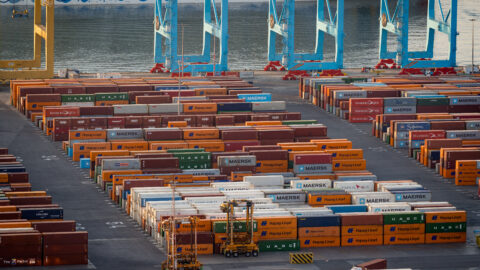The National Retail Federation (NRF) has called on Congress to counter President Trump’s threat to place atariff on an additional $200 billion of Chinese goods, if China doesn’t yield to U.S. demands. The current tariff was set at 25% and is focused on technological goods. The proposed tariff would be set at 10% and would cover a range of products determined by the U.S. Trade Representative.
A study conducted for NRF and the Consumer Technology Association found that the existing tariffs on $50 billion of Chinese imports would reduce U.S. gross domestic product by nearly $3 billion, leading to the loss of 134,000 American jobs. The study also found tariffs on an addition $100 billion of Chinese goods would raise the impact to a $49 billion reduction in GDP and 455,000 jobs lost.
“Higher prices for everyday essentials and lost jobs threaten to sap the energy out of the strong U.S. economy just as most Americans are starting to enjoy the benefits of historic tax reform,” said Matthew Shay, President and CEO of NRF in a statement. “This reckless escalation is the latest reminder that Congress must step in and exert its authority on trade policy.”
China’s commerce ministry said it would take “qualitative” and “quantitative” measures, and “fight back firmly” against additional tariff measures by the U.S., according to Reuters. The threats and counter-threats were among the factors that caused stocks in Shanghai to fall 4% to a two-year low, while the yuan fell to a more than five-month low against the dollar.
Tariff concerns mirror the potential fallout of exiting NAFTA, which could cost retailers a combined $15.8 billion over next three years, according to a report from A.T. Kearney. The study estimated that retail spending would fall by $290 per year per U.S. household, with as many as 128,000 retail-related jobs lost within the next three years.
However, a renegotiation of the treaty would have a relatively small impact, according to Alan Behr, Chair of the fashion practice at law firm Phillips Nizer LLP in an interview with Retail TouchPoints. He noted that shoppers don’t care much about country of origin for most products, and therefore the industry “is not going to be affected by a one-country diminution.” For textiles in particular, the U.S. has many other trading partners to make up for any imports lost from Canada or Mexico.












